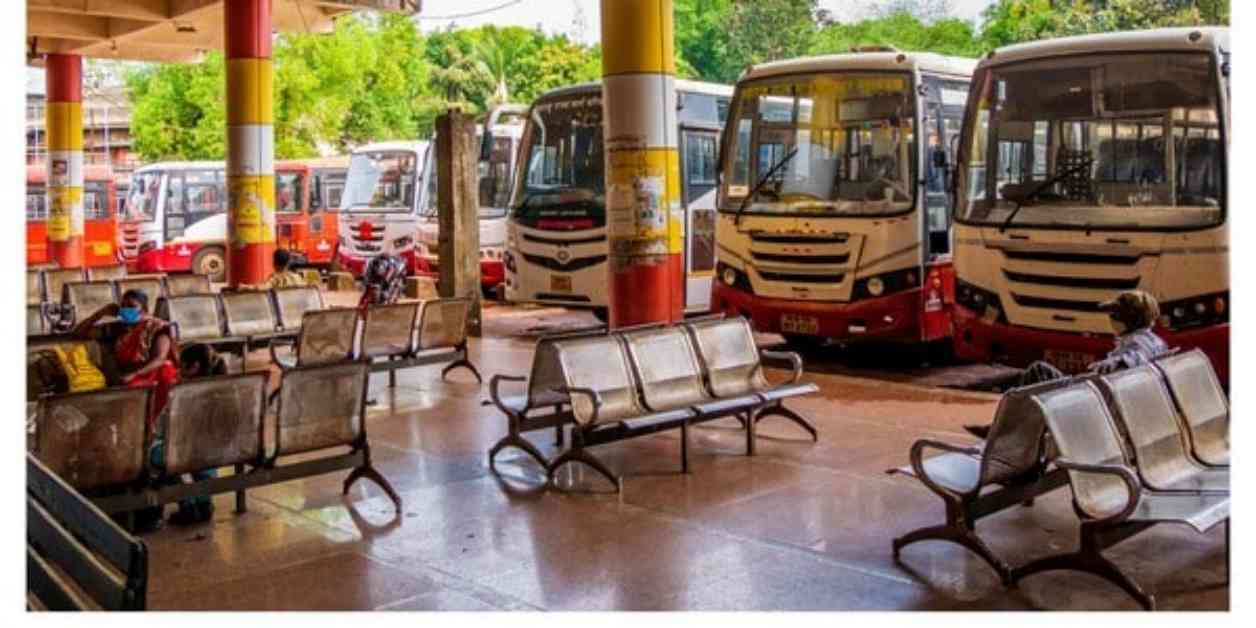MSRTC Employees End Strike, Government Agrees to Pay Hike Before Ganesh Festival
The Maharashtra State Road Transport Corporation (MSRTC) employees have called off their two-day strike after the government’s assurance of a salary hike, bringing relief to passengers planning to travel during the upcoming Ganesh festival. The action committee of trade unions representing MSRTC employees announced the end of the strike following a meeting with Chief Minister Eknath Shinde, who agreed to a Rs 6,500 per month hike in basic salary for the staffers, fulfilling their main demand.
The Chief Minister’s Office (CMO) released a statement confirming that the salary hike will be implemented retrospectively from April 2020. Sandeep Shinde, a leader of the Maharashtra ST Kamgar Sanghtana, expressed satisfaction with the outcome of the meeting, stating, “We are calling off our agitation as the chief minister has assured a salary hike to MSRTC employees.” Another union leader, Shirang Barge, mentioned that during the meeting at Sahyadri Guest House in south Mumbai, the chief minister, who also serves as the MSRTC chairman, agreed to the Rs 6,500 salary hike.
State Industries Minister Uday Samant, speaking to the media after the meeting, disclosed that employee unions had initially demanded a Rs 7,000 hike in basic salary. In addition to the salary increase, the government has also agreed to address other demands put forth by the trade unions, such as providing clean toilets for women employees and undertaking the concretisation of bus depots. The strike, which saw the participation of a significant number of MSRTC employees from the nearly 90,000-strong workforce, began post-Monday midnight in support of various demands, including the salary hike and parity with state government staffers.
The resolution of the strike comes as a significant relief for individuals planning to travel to their hometowns from cities during the 10-day Ganesh festival starting on September 7.
Impact on MSRTC Employees
The agreement between the government and MSRTC employees regarding the salary hike signifies a positive development for the workers who have been advocating for better compensation and working conditions. The Rs 6,500 per month increase in basic salary will not only address the immediate financial concerns of the employees but also improve their overall morale and job satisfaction.
Moreover, the retrospective implementation of the salary hike from April 2020 ensures that employees will receive the rightful compensation for their work during the past year and a half. This move by the government demonstrates its commitment to valuing the contributions of MSRTC employees and prioritizing their well-being.
The assurance of clean toilets for women employees and the concretisation of bus depots are additional benefits that will enhance the working environment and facilities for the MSRTC staff. These improvements reflect a holistic approach to addressing the needs and concerns of the employees, ultimately leading to a more conducive and supportive workplace.
Significance for Passengers and Commuters
The resolution of the MSRTC strike before the Ganesh festival holds significant implications for passengers and commuters who rely on the state-run transport services for their travel needs. With the strike called off, the disruption to the transportation services has been averted, ensuring that individuals can proceed with their travel plans without facing inconvenience or delays.
The timing of the strike resolution just before the Ganesh festival is particularly crucial, as this period witnesses a surge in travel activity with people visiting their hometowns and participating in festive celebrations. The availability of MSRTC buses and smooth operations during this time are essential for ensuring the seamless movement of passengers and facilitating their journey during the festive season.
Furthermore, the agreement between the government and MSRTC employees not only benefits the workers but also has a positive impact on the overall efficiency and reliability of the transport services. By addressing the demands of the employees and ensuring their satisfaction, the government contributes to creating a more stable and productive work environment within the organization, which ultimately translates into better service delivery for the passengers.
Future Implications and Stakeholder Engagement
The successful resolution of the MSRTC strike through dialogue and negotiation sets a positive precedent for handling similar labor disputes and conflicts in the future. By engaging in constructive discussions and addressing the concerns of the employees in a timely manner, the government demonstrates its commitment to resolving issues through peaceful means and prioritizing the welfare of the workforce.
The involvement of multiple stakeholders, including the government, MSRTC employees, trade unions, and industry representatives, in the negotiation process highlights the importance of collaboration and consensus-building in reaching mutually beneficial outcomes. The willingness of all parties to engage in dialogue, listen to each other’s perspectives, and find common ground reflects a mature and responsible approach to conflict resolution.
Moving forward, it is essential for the government and MSRTC management to maintain open lines of communication with the employees and address any emerging issues proactively to prevent future disruptions. By fostering a culture of transparency, trust, and mutual respect, the authorities can build strong relationships with the workforce and ensure a harmonious working environment within the organization.
In conclusion, the resolution of the MSRTC strike and the government’s agreement to implement a salary hike for the employees before the Ganesh festival represent a significant milestone in the journey towards fostering a conducive work environment, ensuring the welfare of the workforce, and enhancing the quality of services for the passengers. This positive outcome underscores the importance of effective stakeholder engagement, timely resolution of disputes, and collaborative decision-making in promoting a sustainable and inclusive work culture within the public transport sector.




















